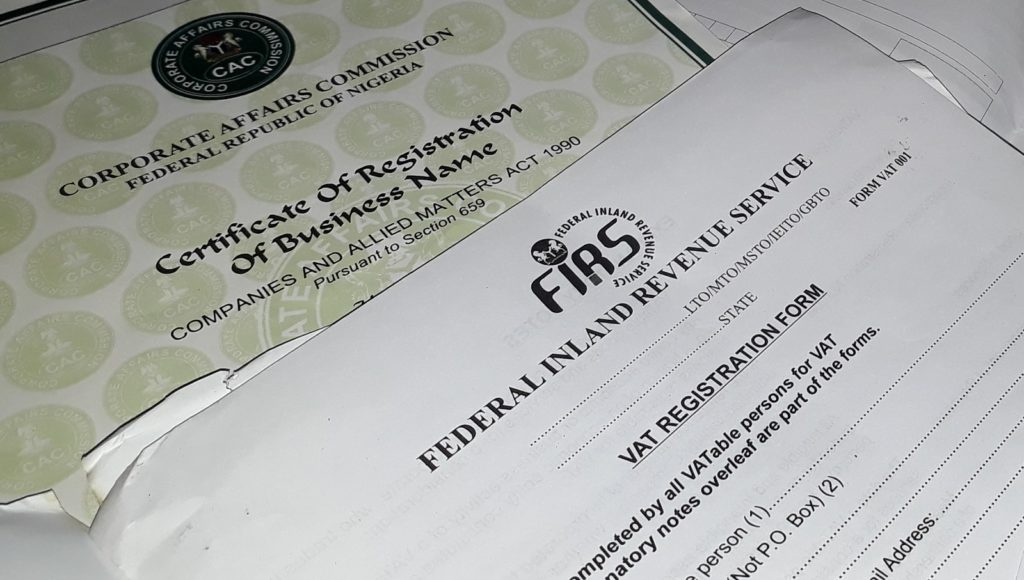Chinese consumer electronics company Honor is set to unveil its latest lineup of smart devices for the South African market. How about we forecast…
Officials at Nigeria’s company registration office milking it with ‘consultation fees’

The Nigerian government may claim to be cutting the cost and time it takes to register a business in the West African country.
But officials at Nigeria’s company registration office are milking entrepreneurs by getting them to pay fees for “business registration services”, while it still takes months — rather than a few days — to register a business.
In April last year Nigeria’s Corporate Affairs Commission (CAC) told the Presidential Enabling Business Environment Council that the agency can now complete company registrations within 48 hours instead of the previous 10 days (compared to the 19 days that the World Bank says it takes to register a business).
Then in September, the agency announced a reduction in the cost of business registration, boasting that filing fees had been slashed by 50%.
Fees up to 300% above official rate
Yet in both these instances your correspondent discovered that the process to register a business can take months to conclude and that fees can run to at times up to 300% above the official rate because staff charge applicants “business registration fees” way above the official company registration rate.
For instance on the CAC’s website, as well as on a notice board at the CAC office in Ibadan, the agency lists the cost a business name registration as 10 000 naira ($329).
Yet the commission’s officials are quick to convince those individuals who approach the office, to engage them as business registration experts, saying the agency allows officials to then charge 30 000 naira to offer such services. This fee is similar to what lawyers and registration experts in Ibadan told Ventureburn they charge entrepreneurs to offer to register a name on their behalf.
The company registration process can take months to conclude and fees can run to at times up to 300% above the official rate
“What we are simply doing is we are asking them to pay what they will pay lawyers and the rest of them and we will ensure that they get their certificate as soon as possible,” a CAC staff told Ventureburn in Ibadan.
As many Nigerians don’t trust government’s websites, many turn to physical registration and to engaging the services of intermediaries, who travel from Lagos to neighbouring cities like Ibadan (120km away) where registrations are still being carried out through physical offices (the CAC office in Lagos and in five other states has been closed by the agency in a bid to get more applicants to register online).
Entrepreneurs duly pay the higher fees believing that if he don’t the CAC officials may delay registration by simply putting the documents aside.
“They know the lawyers and business registration consultants and if you don’t want them to waste your time, just get your registration certificate and move on,” said Ben Okorie who described himself as an accredited agent with the CAC.
Meanwhile officials can benefit further depending on whether applicants intend to register a limited liability company or for a non-governmental organisation (NGO).
Online for instance, individuals seeking to register non-governmental organisations would pay 30 000 naira but on the board at CAC office, it would cost 37 000 naira while lawyers, consultants and CAC staff ask for rates between 100 000 naira and 150 000 naira.
When Ventureburn pressed further to register an NGO without using an intermediary, a couple of CAC staff offered to complete the registration for 70 000 naira.
A breakdown of the actual cost showed that 500 naira would be paid for name reservation while the sum of 30 000 naira would be paid for business registration. The registration also requires two newspaper publications which could done at a total cost of 15 000 naira.
This suggests that an official registering the NGO could pocket as much as 70 000 naira or more, depending on how much they can squeeze out of the person seeking to register the company.
Officials provide tips for extra cash
As compensation, CAC staff assisting those seeking registration would give inside tips on how to avoid incurring further costs particularly tax which is also required to open a corporate account.
“When you get to the tax people, don’t tell them your business has been operating before because if you say that, they will ask you to pay some money as tax for the period you’ve been operating. Instead of saying that, just tell them the company is just starting. That way, you won’t pay anything,” a CAC staff hinted Ventureburn.
Several company owners that are aware of the scheme said they only got aware of what was going on after registering a company but they are now aware of how to prevent being swindled.
“It was only a business name registration that I did through a CAC staff. I learnt my lessons afterwards and I’ve been doing it myself ever-since,” said Seun Obisesan.
Two months to register name
The unclear cost of registration would all be bad enough had it not been for the time it takes to register a business.
On 10 November last year this writer submitted a preferred company name to the CAC. For several weeks, the CAC office said they could not access the internet.
When internet was working electricity outages led to an accumulated backlog of outstanding business registration for the staff of the commission thus further extending the delivery deadline.
When the company was finally added to the CAC online database, another delay was encountered in releasing the certificate which is needed to open corporate account at the bank. For several days, the official tasked with signing the certificate was not at the office.
Finally the registration certificate was ready — dated 10 January 10 2018 – exactly two months later.
Unlike the CAC where the certification process could take weeks, your correspondent spent only 24 hours to get a tax number from the Federal Inland Revenue Service (FIRS) to allow for one to open a corporate bank account.
Acting registrar Azuka Azinge said the CAC hopes to address the lengthy registration times and consultation fees charged by its own officials by closing manual registration in remaining locations in Nigeria.
But for now, to save costs and time, the best way out is to embrace a do-it- yourself approach which the government agencies are preaching — but which threatens job security for the current employees of the commission.


